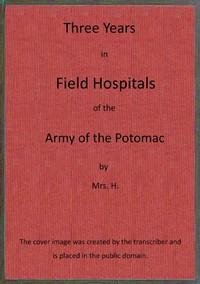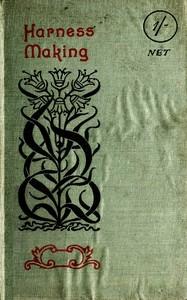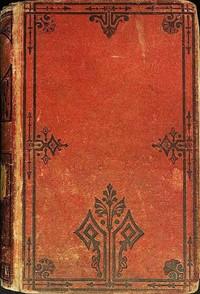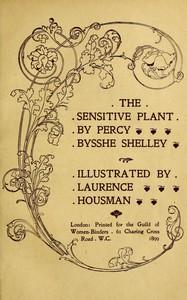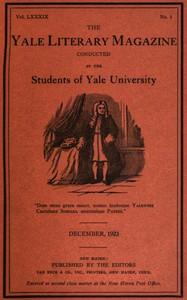|
|
Read this ebook for free! No credit card needed, absolutely nothing to pay.Words: 26822 in 6 pages
This is an ebook sharing website. You can read the uploaded ebooks for free here. No credit cards needed, nothing to pay. If you want to own a digital copy of the ebook, or want to read offline with your favorite ebook-reader, then you can choose to buy and download the ebook.

: Three years in field hospitals of the Army of the Potomac by Holstein Anna M Anna Morris - United States History Civil War 1861-1865 Prisoners and prisons; United States History Civil War 1861-1865 Hospitals; Nurses; United States History Civil War 1861-18@FreeBooksThu 08 Jun, 2023 Trains of wounded were still coming from the late battle, when we arrived; some had lain for many days upon the field, and were gathered up in out-of-the-way places; one such group, of five, "shot to pieces," as they said, were entirely overlooked, until found by a New Hampshire chaplain, who brought them water for their wounds, and obliged the rebels to bring them food: finding they had not died, as they had hoped, they sheltered them slightly from the weather; and at length, to their great joy, they were sent to our lines. In the number were many badly, some singularly wounded. While the hospital continued crowded, the duties were wearisome, giving but little time, either day or night, for any of the attendants to rest; there was much daily occurring of interest among those who now filled the wards. Battle of Gettysburg.--The Wounded.--Incidents in Hospital.--Sanitary Commission Work.--The Flag on "Round Top." We remained at home only long enough for Mr. H. to recuperate sufficiently to bear the fatigues of travel. While he was still unfit for the journey, the great battle of Gettysburg, July 1st, 2d, and 3d, 1863, was fought; within one week after it, we were on our way thither; reaching the town late in the evening, spent the night upon the parlor floor of one of the hotels; with a satchel for pillow, slept soundly. In the morning went to the Field Hospital, where we were most warmly welcomed by our old friends of the second corps. The wounded, at that time, lay just where they had been placed when carried from the battle--friend and foe resting together. "Beside a stricken field I stood; On the torn turf, on grass and wood, Hung heavily the dew of blood. Still, in their fresh mounds lay the slain, But all the air was quick with pain, And gusty sighs, and tearful rain." We soon found where and how to resume work, which we had so lately left off: a tent was promptly prepared for our use; it was not many hours until the "diet kitchen" was in full operation; with the large and valuable supplies taken on with us, the "institution" moved on in a wonderfully smooth, efficient manner. To aid in relieving the suffering among these wounded men was the "Germantown Field Hospital Association" formed; I mention it here because this was the first point where it came prominently into notice. They sent as their representative the well-known rector of one of their churches, Rev. B. W. Morris; his services as chaplain are gratefully remembered by many in these eventful times. An incalculable amount of good resulted from this new "Association:" to me was given the great pleasure of distributing the articles which they contributed; and, until the close of the war, appeals for money or hospital comforts ever met with a ready, cheerful response, and an abundant supply of all that was needed. They afterward became one of the most valuable aids to the "United States Sanitary Commission" to be found in Pennsylvania. These days have left their impress upon all who were actors in them. Now, on this calm morning upon which I write, there comes thronging before me a vast array of forms and faces that I had thought forgotten. "Awake but one, and lo! what myriads rise!"--and so the swiftly changing scenes appear. Large numbers of rebel wounded, numbering thousands, were left in our corps hospital; and though attended by their own surgeons, they neglected them so shamefully that it was an act of common humanity to provide better treatment for men helpless and suffering,--prisoners as they were. One of our surgeons volunteered to undertake the duty of attending them, and others were detailed for that purpose. Their condition when captured was so filthy that the task of waiting upon them was a revolting one. Captain J. C. H., of the 145th Pennsylvania Vols., from Erie, had much the same idea; he was suffering from a thigh amputation--the only one of nineteen similar cases, performed at the same time, that lived; a rebel officer was placed in the back part of the captain's tent, when he instantly ordered the nurses to carry him, upon his bed, under a tree which stood near--and there he remained nearly all day, until the surgeon in charge settled the difficulty by removing the rebel. About one-third of the camp were rebels; this proportion was almost uniformly kept up; rebel ladies from Baltimore and other places were permitted to come and wait upon their own wounded; as matron, it was part of my duties to attend to the distribution of delicacies, etc.; I have waited upon them hour after hour, as kindly as I ever did upon our own loyal men. All this was before I had been among those who were starved in Southern prisons; after having seen them, the task might have been a difficult one. The orders were imperative in the hospital: no difference was permitted in the treatment of the two. We found, in the rebel wards, the son of a former Secretary of State of New Hampshire, a conscript from Georgia; his life had been repeatedly threatened by them, if he dared to leave, or if he admitted that he was a Union man; so that no one ever suspected the fact, until the rebel officers had all been sent to "Johnson's Island" or Baltimore; the same evening he came to the Sanitary tent, and told his story; from there taken to headquarters, where it was repeated,--insisting that he would take his own life, rather than leave the hospital a rebel prisoner. To assure him that he was among friends, the provost marshal was sent for, and the oath of allegiance taken. He remained as clerk for some time; when his wound permitted, was sent home. Free books android app tbrJar TBR JAR Read Free books online gutenberg More posts by @FreeBooks
: Harness making by Hasluck Paul N Paul Nooncree Editor - Harnesses; Horses Equipment and supplies; Harness making and trade@FreeBooksThu 08 Jun, 2023

: Up the ladder; by Leslie Madeline Hyde John N Illustrator - Christian life Juvenile fiction; Merchants Juvenile fiction; Diligence Juvenile fiction; Success Juvenile fiction; Apprentices Juvenile fiction; Alcoholics Juvenile fiction@FreeBooksThu 08 Jun, 2023
|
Terms of Use Stock Market News! © gutenberg.org.in2025 All Rights reserved.

